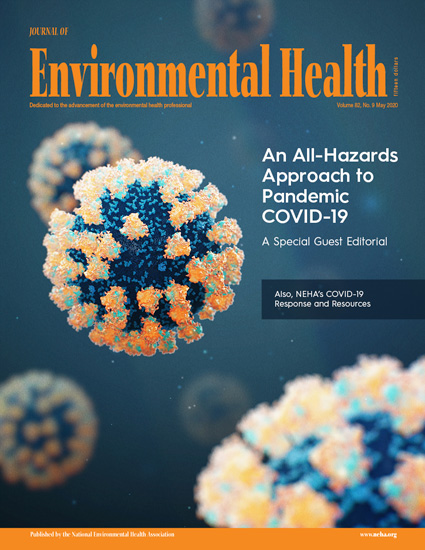中文名称:
环境发展
期刊缩写:
Environ. Dev.
影响因子:
5.3
ISSN:
print: 2211-4645
研究领域:
Social Sciences-Geography, Planning and Development
h-index:
24
自引率:
1.90%
Gold OA文章占比:
21.32%
原创研究文献占比:
89.61%
SCI收录类型:
Science Citation Index Expanded (SCIE) || Scopus (CiteScore)
期刊介绍英文:
Environmental Development provides a future oriented, pro-active, authoritative source of information and learning for researchers, postgraduate students, policymakers, and managers, and bridges the gap between fundamental research and the application in management and policy practices. It stimulates the exchange and coupling of traditional scientific knowledge on the environment, with the experiential knowledge among decision makers and other stakeholders and also connects natural sciences and social and behavioral sciences. Environmental Development includes and promotes scientific work from the non-western world, and also strengthens the collaboration between the developed and developing world. Further it links environmental research to broader issues of economic and social-cultural developments, and is intended to shorten the delays between research and publication, while ensuring thorough peer review. Environmental Development also creates a forum for transnational communication, discussion and global action.
Environmental Development is open to a broad range of disciplines and authors. The journal welcomes, in particular, contributions from a younger generation of researchers, and papers expanding the frontiers of environmental sciences, pointing at new directions and innovative answers.
All submissions to Environmental Development are reviewed using the general criteria of quality, originality, precision, importance of topic and insights, clarity of exposition, which are in keeping with the journal''s aims and scope.
期刊介绍中文:
《环境发展》是一本跨学科、面向未来的期刊,专注于为地方和区域范围内的全球相关环境和发展问题做出贡献的研究和实践。环境发展为理论知识贡献和实证、基于实践的应用提供了一个渠道,解决与可持续发展的环境层面相关的问题。环境发展感兴趣的是大胆创新的研究应用、方法和实践,以平衡发展需求与社会和自然环境的长期需求。该杂志旨在为研究人员、发展实践者、政策专业人员以及从事研究和社会工作的社区提供一个科学和经验知识交流的平台。该杂志对在地方和区域范围内促进全球相关环境和发展问题的研究和实践感兴趣,为环境发展的研究、交流、讨论和全球行动提供了一个国际论坛。
CiteScore:
| CiteScore | SJR | SNIP | CiteScore排名 |
|---|---|---|---|
| 8.4 | 1.285 | 1.461 | 学科 排名 百分位 大类:Social Sciences 小类:Geography, Planning and Development 62 / 821 92% 大类:Environmental Science 小类:Management, Monitoring, Policy and Law 60 / 399 85% |
发文信息
中科院SCI期刊分区
2025年3月20日发布
| 大类 | 小类 | TOP期刊 | 综述期刊 |
|---|---|---|---|
| 2区 环境科学与生态学 | 2区 环境科学 ENVIRONMENTAL SCIENCES | 否 | 否 |
2023年12月发布
| 大类 | 小类 | TOP期刊 | 综述期刊 |
|---|---|---|---|
| 2区 环境科学与生态学 |
2区
环境科学
ENVIRONMENTAL SCIENCES
|
否 | 否 |
WOS期刊分区
| 学科分类 |
|---|
Q2ENVIRONMENTAL SCIENCES |
历年影响因子
| 2015年 | 0.0000 |
|---|---|
| 2016年 | 0.0000 |
| 2017年 | 2.3440 |
| 2018年 | 2.5000 |
| 2019年 | 2.4000 |
| 2020年 | 3.3260 |
| 2021年 | 4.6900 |
| 2022年 | 5.4000 |
| 2023年 | 4.7000 |
| 2024年 | 5.3000 |
历年发表
| 2012年 | 70 |
|---|---|
| 2013年 | 81 |
| 2014年 | 47 |
| 2015年 | 46 |
| 2016年 | 76 |
| 2017年 | 62 |
| 2018年 | 52 |
| 2019年 | 58 |
| 2020年 | 79 |
| 2021年 | 79 |
| 2022年 | 62 |
投稿信息
出版语言:
English
出版国家(地区):
Netherlands
接受率:
11%
初审时长:
59 days
审稿时长:
74 days
发表时长:
9 days
出版商:
Elsevier BV
编辑部地址:
RADARWEG 29, AMSTERDAM, NETHERLANDS, 1043 NX
Environmental Development - 最新文献
Multiscale eco-hydrological zoning in the Yarlung Zangbo River Basin, Qinghai–Tibet Plateau, China
Pub Date : 2025-10-17 DOI: 10.1016/j.envdev.2025.101378 Yanguo Liu , Li Wang , Xiurong He , Jingji Li , Ziqin Wang , Yu Chen , Qiang Zou , Liwei Tan , Mengni He , Xiangjun PeiDifferential effects of vegetation types on regional carbon stocks in China: A meta-analysis-based integrated assessment of above-ground and surface soil carbon pools
Pub Date : 2025-10-15 DOI: 10.1016/j.envdev.2025.101377 Guannan Cui , Wenchao Li , Yihao Meng , Liming DongUse and perception of cultural ecosystem services from green spaces: A case from Kolkata Megacity Region (India)
Pub Date : 2025-10-15 DOI: 10.1016/j.envdev.2025.101376 Manob Das , Arijit Das
免责声明:
本页显示期刊或杂志信息,仅供参考学习,不是任何期刊杂志官网,不涉及出版事务,特此申明。如需出版一切事务需要用户自己向出版商联系核实。若本页展示内容有任何问题,请联系我们,邮箱:info@booksci.cn,我们会认真核实处理。
本页显示期刊或杂志信息,仅供参考学习,不是任何期刊杂志官网,不涉及出版事务,特此申明。如需出版一切事务需要用户自己向出版商联系核实。若本页展示内容有任何问题,请联系我们,邮箱:info@booksci.cn,我们会认真核实处理。








